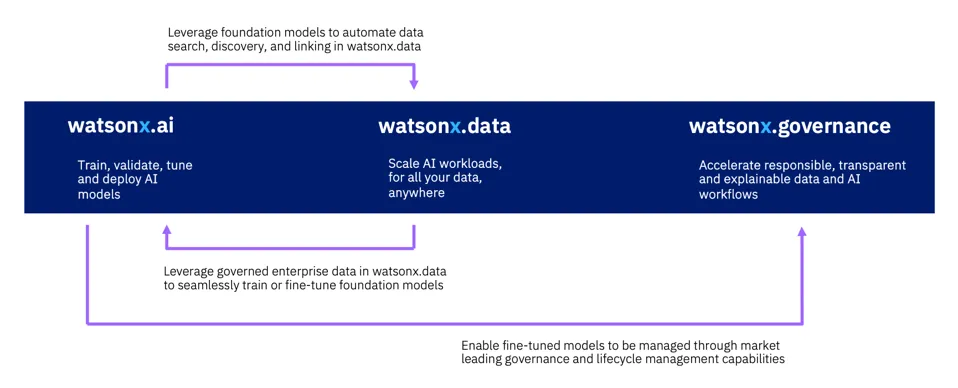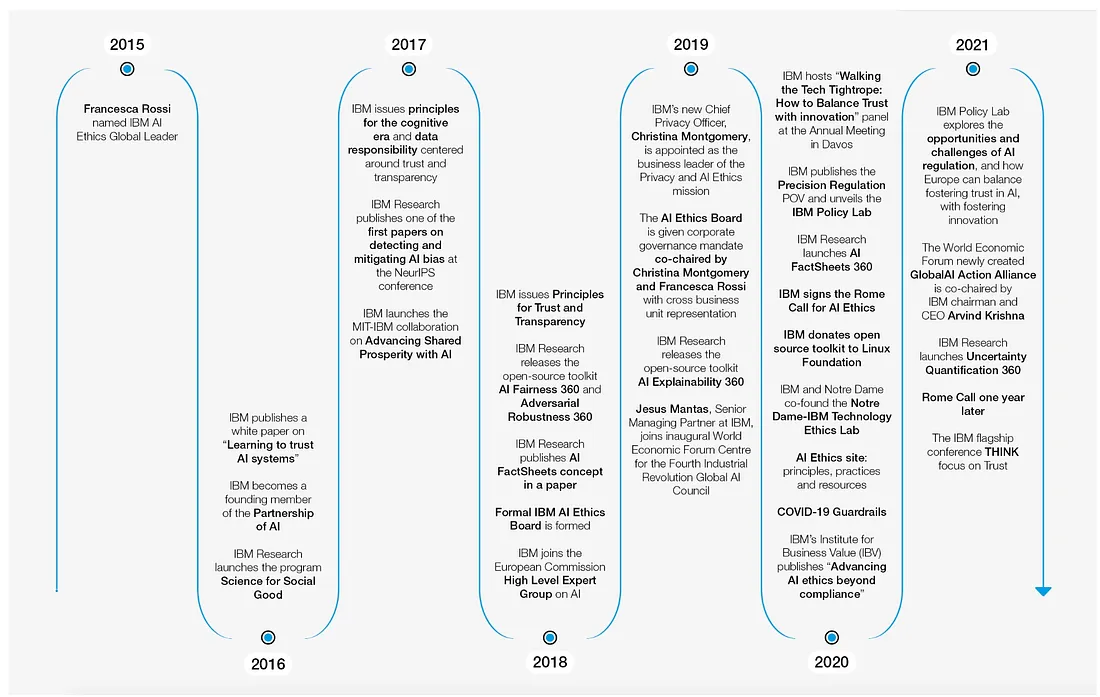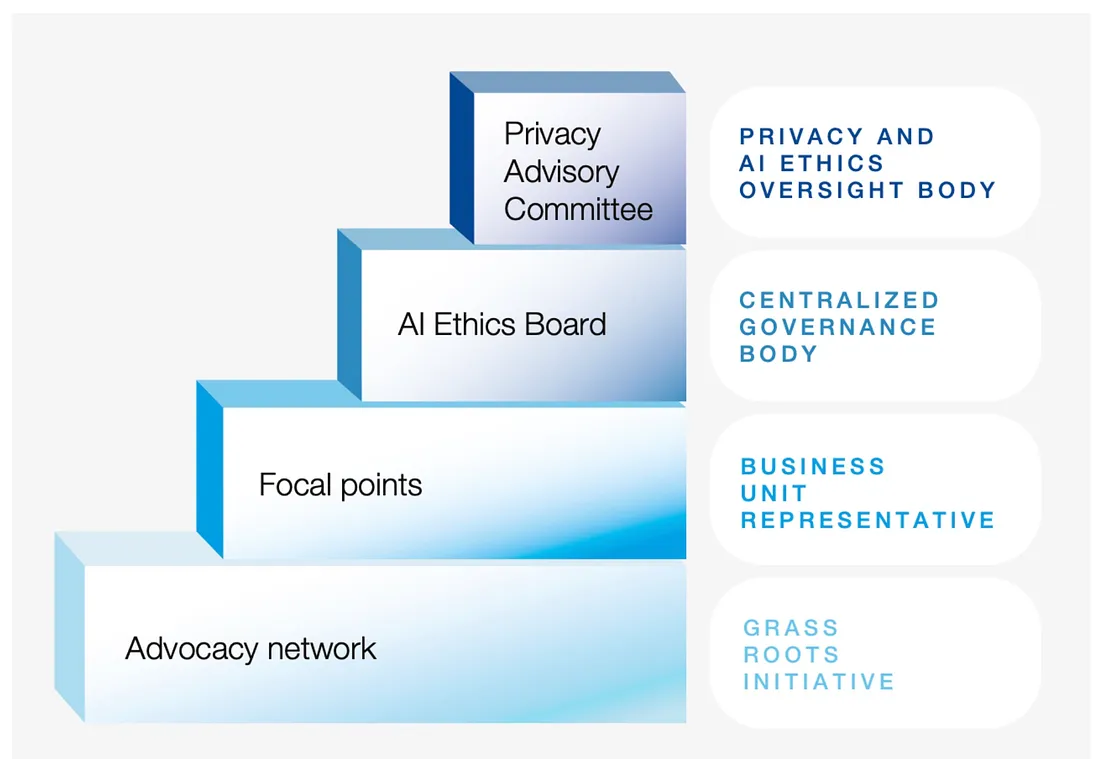Good governance helps mitigate risks, including legal and ethical violations, repetitional damage, and operational inefficiencies. Here’s why governance is essential for AI in business and how to create a robust governance framework, with reference to IBM’s governance principles as an example.

Governance is the cornerstone for advancing and scaling artificial intelligence. Governance is critical for AI in business because it ensures that AI systems are used responsibly, ethically, and effectively, aligning with both business objectives and societal norms.
As a new and important strategy that expands the scope of the challenges and opportunities with AI, IBM Consulting is expanding its strategic expertise to help clients / partners adopt responsible AI practices, encompassing automated model governance and broader organisational governance. This includes addressing AI ethics, organisational culture, accountability, training, regulatory compliance, risk management, and cybersecurity threats.

The watsonx.governance offering is part of the IBM watsonx AI and data platform, alongside other products like AI assistants and data storage solutions, designed to assist enterprises in scaling and accelerating their AI initiatives. Additionally, IBM is offering intellectual property protection for its IBM-developed watsonx models.
The broader watsonx portfolio allows IBM aims to enable businesses to innovate with AI while maintaining transparency, accountability, and control over their AI initiatives.
The ethical AI and governance principles of IBM
IBM is known for its commitment to ethical AI and has established a set of governance principles.
Transparency and Explainability: IBM places a strong emphasis on transparent communication regarding the utilisation of AI. Decisions made by AI systems should be clear and explainable, fostering a deeper understanding of their functioning.
Accountability: While acknowledging the potential augmentation of human intelligence by AI, IBM firmly advocates for the ultimate decision-making authority to reside with humans. This approach ensures a clear chain of accountability for the outcomes of AI-driven processes.

Fairness and Bias Mitigation: IBM actively engages in efforts to create and deploy AI systems devoid of bias. The goal is to guarantee that these systems treat all users impartially and avoid perpetuating any unfairness or discrimination.
Privacy and Security: Committed to upholding the highest standards, IBM pledges to safeguard data privacy and security. This entails ensuring that user data remains protected and that AI systems are resilient against potential security threats.
By integrating these principles and practices, businesses can construct a robust governance framework for AI. Such a framework not only ensures the ethical conduct of AI initiatives but also fosters compliance with regulations while aligning seamlessly with both business objectives and societal values.
The Ethical AI and governance framework at IBM
IBM emphasises the significance of an ethical, AI-centred approach to governance. Their framework involves a wide range of stakeholders including AI developers, users, policymakers, and ethicists, ensuring that AI systems align with societal values. This comprehensive involvement is crucial for developing and using AI-related systems responsibly.
IBM’s AI Governance Consulting services underscore the transformative potential of AI in business. They offer expertise in helping enterprises leverage AI to drive business transformation and harness the value from AI-induced disruptions. This approach emphasises the strategic integration of AI governance into business practices, ensuring that AI initiatives are aligned with business objectives and deliver substantial value.

Additionally, IBM’s AI Academy on AI Governance provides resources for setting up responsible AI workflows and outlines the overall process of AI activities in an organisation. This guidance is geared towards ensuring that organisations’ AI initiatives result in trusted outcomes and explainable results, highlighting the importance of transparency and accountability in AI operations.
These principles and resources from IBM offer a robust framework for businesses looking to incorporate AI into their operations ethically and effectively, ensuring that AI governance is an integral part of their organisational strategy.

Dinis Guarda is an author, academic, influencer, serial entrepreneur, and leader in 4IR, AI, Fintech, digital transformation, and Blockchain. Dinis has created various companies such as Ztudium tech platform; founder of global digital platform directory openbusinesscouncil.org; digital transformation platform to empower, guide and index cities citiesabc.com and fashion technology platform fashionabc.org. He is also the publisher of intelligenthq.com, hedgethink.com and tradersdna.com. He has been working with the likes of UN / UNITAR, UNESCO, European Space Agency, Davos WEF, Philips, Saxo Bank, Mastercard, Barclays, and governments all over the world.
With over two decades of experience in international business, C-level positions, and digital transformation, Dinis has worked with new tech, cryptocurrencies, driven ICOs, regulation, compliance, and legal international processes, and has created a bank, and been involved in the inception of some of the top 100 digital currencies.
He creates and helps build ventures focused on global growth, 360 digital strategies, sustainable innovation, Blockchain, Fintech, AI and new emerging business models such as ICOs / tokenomics.
Dinis is the founder/CEO of ztudium that manages blocksdna / lifesdna. These products and platforms offer multiple AI P2P, fintech, blockchain, search engine and PaaS solutions in consumer wellness healthcare and life style with a global team of experts and universities.
He is the founder of coinsdna a new swiss regulated, Swiss based, institutional grade token and cryptocurrencies blockchain exchange. He is founder of DragonBloc a blockchain, AI, Fintech fund and co-founder of Freedomee project.
Dinis is the author of various books. He has published different books such “4IR AI Blockchain Fintech IoT Reinventing a Nation”, “How Businesses and Governments can Prosper with Fintech, Blockchain and AI?”, also the bigger case study and book (400 pages) “Blockchain, AI and Crypto Economics – The Next Tsunami?” last the “Tokenomics and ICOs – How to be good at the new digital world of finance / Crypto” was launched in 2018.
Some of the companies Dinis created or has been involved have reached over 1 USD billions in valuation. Dinis has advised and was responsible for some top financial organisations, 100 cryptocurrencies worldwide and Fortune 500 companies.
Dinis is involved as a strategist, board member and advisor with the payments, lifestyle, blockchain reward community app Glance technologies, for whom he built the blockchain messaging / payment / loyalty software Blockimpact, the seminal Hyperloop Transportations project, Kora, and blockchain cybersecurity Privus.
He is listed in various global fintech, blockchain, AI, social media industry top lists as an influencer in position top 10/20 within 100 rankings: such as Top People In Blockchain | Cointelegraph https://top.cointelegraph.com/ and https://cryptoweekly.co/100/ .
Between 2014 and 2015 he was involved in creating a fabbanking.com a digital bank between Asia and Africa as Chief Commercial Officer and Marketing Officer responsible for all legal, tech and business development. Between 2009 and 2010 he was the founder of one of the world first fintech, social trading platforms tradingfloor.com for Saxo Bank.
He is a shareholder of the fintech social money transfer app Moneymailme and math edutech gamification children’s app Gozoa.
He has been a lecturer at Copenhagen Business School, Groupe INSEEC/Monaco University and other leading world universities.






























